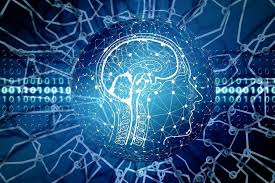
AI for Everyone
This "AI for Everyone" course is designed to introduce students to the basics of Artificial Intelligence (AI) and its applications in various industries. The course will cover the fundamentals of AI, including machine learning, deep learning, and natural language processing. Students will learn how to build simple AI models using popular frameworks such as TensorFlow and Keras.
Overview

AI for Everyone
Course Learning Outcomes (CLOs) and SLOs
Course Learning Outcomes (CLOs) typically include:
Student Learning Outcomes (SLOs) are specific goals for students, such as:

Benefits
With AI, the world is your oyster! It is an emerging field, rapidly growing, ever evolving and watched with a keen eye by industries and markets globally. There are many benefits to an education in AI:
In demand Career
With a Bachelor in artificial intelligence you are equipped with in-demand skills in the rapidly growing field of AI. Knowledge of developing AI systems, data analysis and AI techniques makes you valuable across industries, right from healthcare, finance, tech and more. This degree prepares you for career that has multiple options for diversification. AI professionals include AI engineers, data scientists, machine learning specialists, AI consultants, researchers and more. AI is transformative technology that is revolutionising the world. With an education background in AI, you are set up in an in-demand career field with an exciting future ahead!
Innovation and advancement
Applied AI is all about finding solutions and using AI systems to make life simpler. Applied AI draws on its solid foundation in Computer Science to analyse and provide solutions for real world challenges. You are prepared to address complex problems and contribute meaningfully in domains like healthcare diagnostics, fraud detection, autonomous vehicles, personalised recommendations and more. Being able to apply AI techniques for solving tasks makes for an extremely rewarding and impactful job role!
Solving real world problems
AI aims to constantly bridge the gap between natural intelligence and machine learning - it is a field of cutting edge research, innovation and advancing technology. This makes it ever evolving, with new algorithms, models and techniques being developed. By studying AI at an undergraduate level, you gain a strong foundation in AI fundamentals that help you better understand the latest advancements. You step into a career that empowers you to push the boundaries of AI, contribute to research and development and drive innovation in the field.
100% International
Study at your own pace from anywhere in the world
Recommended by 96% of our graduates
According to our latest alumni survey
50,000+ students
enrolled in Germany’s largest university
Study contents
Contents
What is Artificial Intelligence (AI)?
Benefits of Artificial Intelligence (AI):
Chatbots and Virtual Assistants
Admission
Admission Criteria
Education and Training: Bachelors and Master's Programs: Many universities offer undergraduate and graduate programs in Computer Science, Data Science, Machine Learning, and Artificial Intelligence. These programs provide a solid foundation in mathematics, statistics, and programming languages. Online Courses: Online platforms like Coursera, edX, and Udemy offer courses on AI and related topics. These courses are ideal for those who want to gain skills without committing to a full degree program. Certifications: Professional certifications like the Certified Data Scientist (CDS) or Certified Artificial Intelligence (CAI) can demonstrate expertise and knowledge in AI. Admission Requirements: Mathematics: A strong foundation in mathematics is essential for AI studies. Students should have a solid understanding of linear algebra, calculus, probability, and statistics. Programming Skills: Proficiency in programming languages like Python, Java, or C++ is necessary for AI development. Data Analysis: Knowledge of data analysis and visualization tools like Excel, Tableau, or Power BI can be beneficial. Domain Knowledge: Familiarity with specific domains like computer vision, natural language processing, or robotics can be an advantage. Career Paths: Researcher: Pursue a career in academia or research institutions to develop new AI technologies. Data Scientist: Apply AI algorithms to analyze large datasets and drive business decisions. Software Developer: Design and implement AI-powered software applications. Consultant: Provide AI solutions to organizations across various industries.
Careers
Find Your Career Now
The exciting field of Artificial Intelligence (AI)! As AI continues to transform industries and revolutionize the way we live and work, the demand for skilled professionals in this field is growing rapidly. Here are some AI-related career paths that can be rewarding and fulfilling for everyone: 1. Data Scientist: Data scientists design and develop algorithms, models, and systems that can analyze and learn from large datasets. They use machine learning, deep learning, and other AI techniques to extract insights and make predictions. 2. Machine Learning Engineer: Machine learning engineers design, develop, and deploy machine learning models to solve complex problems. They work on tasks like natural language processing, computer vision, and recommender systems. 3. Natural Language Processing (NLP) Specialist: NLP specialists focus on developing AI systems that can understand, generate, and process human language. They work on chatbots, voice assistants, and sentiment analysis. 4. Computer Vision Engineer: Computer vision engineers develop AI-powered systems that can interpret and understand visual data from images, videos, and sensors. They work on applications like self-driving cars, facial recognition, and medical imaging. 5. Robotics Engineer: Robotics engineers design and develop intelligent robots that can interact with their environment using AI algorithms. They work on tasks like motion planning, object recognition, and manipulation. 6. AI Researcher: AI researchers focus on advancing the field of AI by developing new algorithms, models, and techniques. They work on topics like reinforcement learning, transfer learning, and explainability. 7. Business Analyst (AI): Business analysts use AI to analyze business data, identify patterns, and make predictions. They help organizations optimize operations, improve decision-making, and drive revenue growth. 8. AI Ethics Specialist: AI ethics specialists focus on ensuring that AI systems are designed and deployed responsibly. They consider ethical implications of AI decisions and develop guidelines for ethical AI development. 9. Technical Writer (AI): Technical writers create documentation for AI systems, explaining complex technical concepts to non-technical stakeholders. They work on user manuals, tutorials, and online documentation. 10. IT Project Manager (AI): IT project managers oversee the implementation of AI projects, ensuring they are completed on time, within budget, and meet business requirements. 11. Cybersecurity Specialist (AI): Cybersecurity specialists use AI-powered tools to detect and prevent cyber threats. They work on threat intelligence, incident response, and digital forensics. 12. Healthcare Informatics Specialist: Healthcare informatics specialists apply AI to healthcare data to improve patient outcomes, streamline clinical workflows, and reduce costs. 13. Finance Analyst (AI): Finance analysts use AI to analyze financial data, predict market trends, and make investment decisions. 14. Marketing Analyst (AI): Marketing analysts use AI-powered tools to analyze customer behavior, predict consumer trends, and optimize marketing campaigns. 15. Educational Technologist (AI): Educational technologists design and develop AI-powered educational tools to improve student learning outcomes.
Student reviews
Coming Soon.
Tuition fees
All our study programmes include the following benefits
- Teaching and study material
- Marking of your end-of-module exams
- Monthly live and recorded tutorials
- Use of the online campus
- Individual study coaching
- Online exams
- Career coaching
- Learn English for free
Our global recognition

IU is recognised by WES Canada and U.S., which means your degree can be converted to points in the local system for purposes of immigration, work, or studies.

As the first EU institution in UNESCO's Global Education Coalition, IU is committed to ensuring accessible quality education to students in crisis worldwide through free online micro-credentials.
Our company partners

For over 20 years, IU has established partnerships with leading global companies. This offers you the chance to gain firsthand experience through internships and projects and allow us to adapt our learning content to the ever-evolving needs of the labour market. You'll benefit from an education designed to bridge the gap between theory and real-world practice, ensuring your readiness for your future career.
Recognition
Recognition of previous achievements
Have you already completed a training course, studied at a university or gained work experience? Have you completed a course or a learning path through EPIBM LinkedIn Learning, and earned a certificate? Then you have the opportunity to get your previous achievements recognised, and complete your studies at EPIBM sooner.

Save time:
Skip individual modules or whole semesters!
Even before you apply for a study programme, we’ll gladly check whether we can take your previous achievements into account: 100% online, no strings attached. Simply fill in our recognition application form, which you can find under the content section of each study programme's webpage, and upload it via our upload section. You can also e-mail it to us, or send it via post.
Send an email to [email protected] to find out which previous achievements you can get recognised. You can get your previous achievements recognised during your studies.
Recognition files
Autonomous vehicles developer
With AI, the world is your oyster! It is an emerging field, rapidly growing, ever evolving and watched with a keen eye by industries and markets globally. There are many benefits to an education in AI:
That’s why after graduating, you’ll be able to apply your professional skills and knowledge, and work for development teams at any sector you find appealing.


Augmented reality (AR/VR) developer
Virtual (or augmented) reality isn’t all just fun and games, as great and enjoyable as that aspect is. It can also be used for groundbreaking social and psychological research, defensive purposes and therapy.
With an Applied Artificial Intelligence degree from IU University of Applied Sciences, you can take part in this vital field of technological development, and work on a wide variety of interesting projects.
Change what the world thinks about the possibilities that AI offers, and make a real difference in people’s lives, while enjoying every step of the process.
F.A.Q
Frequently Asked Questions
You might also be interested in these study programmes
Accredited and certified













